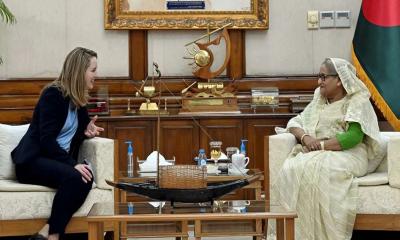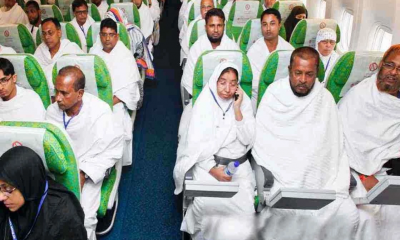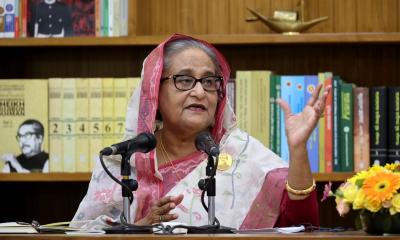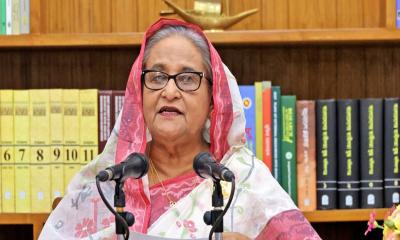The ride-hailing services are playing a significant role for women to access the workforce as nearly three lakh women are expected to join Dhaka workforce by 2028 as per a study report released on Thursday.
Uber, Bangladesh’s most preferred ride-hailing app, released the research report that sheds light on the transformative role of ride-hailing platforms in empowering women and fostering economic opportunities in Bangladesh.
The industry report, titled "Ride-Hailing: A Platform for Women`s Economic Opportunity in Bangladesh," unveils a compelling view of how these services are playing a transformative role in bringing more women into the workforce.
The study reflects how ride-hailing services have become a vital vehicle for women to access the workforce or move up the ladder to achieve financial independence.
As per the projections of the study, access to mobility could increase female workforce in Dhaka by over 13 percent by 2028 and nearly three lakh women will join Dhaka workforce with a ride-hailing boost to women.
This bump up could result in a boost to the size of Dhaka`s economy by over 1.5 percent by 2028, the study also projected.
Commenting on the report, Chairman of Bangladesh Road Transport Authority Nur Mohammad Mazumder said access to safe and reliable transportation is crucial for women`s economic empowerment, and ride-hailing services play a significant role in addressing this need.
“The findings of Uber`s research report align with our efforts to promote gender equality and create opportunities for women in the workforce. We commend initiatives like this that contribute to improving women`s mobility and fostering economic inclusion in Bangladesh," he said.
Country Head at Uber Bangladesh Nasheed Ferdous Kamal said, “Uber has been an important engine of economic growth and opportunity in Bangladesh since 2016. Greater women’s participation in the workforce is vital for Bangladesh to realise its economic potential.”
She said this research by Oxford Economics highlights how safe, reliable commuting options could get more women to participate in the workforce.
“I’m heartened to see how Uber and other ride hailing options are helping solve this ‘gender commute gap’ by providing women a safe and convenient option to get to work, whether directly or to their nearest mass transit station. Uber is proud to help Bangladeshi women take part in the country’s economic success story - today and in the future,” she added.
Lead Economist of Oxford Economics Bali Kaur Sodhi said women around the world still participate less than men in paid work. “This report gives an evidence-based policy recommendation for adoption of technology in helping remove mobility barriers for women to enter the workforce or move up in their careers,” she said.
The research report also draws from a survey conducted on-ground in Dhaka. In partnership with Uber, Oxford Economics conducted a survey of Uber riders to gain a comprehensive understanding of the ride-hailing behaviours of women and men across Dhaka.
It reveals interesting insights into the impact of ride-hailing on women`s workforce participation as over one in three working women riders agreed that the availability of ride-hailing services enabled them to join the workforce.
Nearly half of the working women surveyed said that ride-hailing services helped them balance their time across work and family, and manage a flexible arrangement at work.
Nearly nine in 10 of the women surveyed who use ride-hailing to commute to work said they did so because it offered a safer option than alternative travel modes.
Women in Bangladesh have lower labor force participation rates than their global peers. Compared with a worldwide female labor force participation rate of 47% in 2022, the figure for Bangladesh was 43%. As per the report, the two biggest challenges to women’s mobility are a lack of access to safe transport and the current imbalance in their work-family arrangements, said a press release.






-cannot-influence-the-upazila-parishad-elections-(1)-20240507121623.jpg)



-20240507143830.jpg)
























